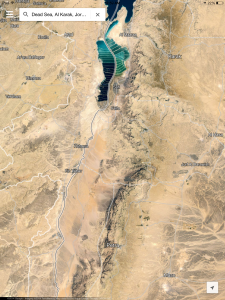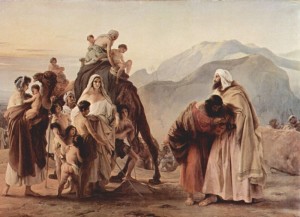The Wisdom Chronicle, posted every Monday, is designed to bring nuggets of wisdom from myriad sources. I read 75-100 books per year in all genres. My goal is to share the best of what I come across each week. The determination of relevance lies with you. Blessings, Jim Whiddon
11. HARD WORK “There is no elevator to success—you have to take the stairs.” — Unknown
12. MAN’S BEST FRIEND “A door is what a dog is perpetually on the wrong side of.” — Ogden Nash
13. SERENDIPITY “The story of 3M’s Post-it! Notes was well chronicled in Tom Peter’s classic book, In Search of Excellence. What was (and is) fascinating about the story is not merely the success of the sticky notes, it’s the fact that 3M, well known for its strong adhesives, screwed-up during research and development and created an unusually weak and seemingly useless adhesive. In fact, the glue was so weak that it couldn’t hold paper together permanently. Voila!
Velcro was developed in the 1960s by NASA to hold things down so they wouldn’t float all over the place in outer space.
Preparation H is used by actors to remove the puffiness under their eyes.”
Excerpt From: Avrin, David. “It’s Not Who You Know — It’s Who Knows You!.”
14.SELF EDUCATION “Most great men in history have become great because they aggressively pursued knowledge. They overcame gaps in their early education. They studied to understand the world at a level well beyond their years. They took responsibility for their education and did not wait for the knowledge they needed to come to them.
There isn’t the space here to list all the great men who set themselves apart through self-education. Winston Churchill read so ravenously when he was a young officer in India that a biographer later wrote that “he became his own university.” Lincoln was also enflamed by a hunger to learn. He read every book he could buy or borrow.
Devotion to self-education is unquestionably one of the marks of an exceptional man. Passive men wait for knowledge to come to them. Weak men assume what they need to know will seek them out. Men of great character and drive search out the knowledge they need. They take responsibility for knowing what they must know to live effectively in their generation and to prosper. I know this sounds old school. I know this sounds like a lesson meant for the barefoot boy born in a dirt-floor cabin in the 1800s. I assure you it is a lesson for men today. In fact, it may prove to be one of the most important lessons for men today.”
Excerpt From: Mansfield, Stephen. “Mansfield’s Book of Manly Men.”
15. COMFORT “Our Heavenly Father has provided many delightful inns for us along our journey, but He takes great care to see that we do not mistake any of them for home.” — C.S Lewis
16. HISTORY WRITTEN BY THOSE WITH BEST PRESS AGENTS “It was Amerigo Vespucci, an acquaintance of Columbus, who is credited with America’s discovery in 1497, five years after Columbus landed in the Caribbean Islands while searching for a new route to the spice-rich Far East. Chinese Admiral Cheng Ho, who visited the Americas in 1421, could lay claim as well — and there is also evidence that Scandinavian explorer Leif Erikson reached the Americas hundreds of years before any of these other explorers.” Excerpt From: Ben Carson, M.D. “America the Beautiful.”
17. COMMITMENT “Some people want to master every corner of the God question before they make a commitment to believe in Him, and they miss the heart of the issue—the issue of the heart.”
Excerpt From: Jeremiah, David. “Searching for Heaven on Earth.”
18. RESPONSIBILITY OF OUR GENERATION “If there must be trouble,” said American revolutionary Thomas Paine, “let it be in my day, that my child may have peace.”
Will our grandchildren enjoy the freedom and prosperity we enjoy, or will they ask us, “Where were you when freedom died?”
As Dietrich Bonhoeffer said, “Not to stand is to stand. Not to speak is to speak.”
Saint Catherine of Siena said, “If you are what you should be, you will set the whole world on fire.”
Excerpt From: James Robison & Jay W. Richards. “Indivisible.”
19. LAWS AND MORALS “Did the abolition of slavery and the passage of civil rights laws affect people’s attitudes about slavery and race? Did Roe v. Wade, which struck down state restrictions on abortion, influence people’s views on abortion? If same-sex “marriage” is made the law of the land, do you think that will affect the sexual attitudes and actions of schoolchildren? If suicide for the terminally ill becomes widely accepted, do you think this will affect how we view the sick and the elderly? If the sale of marijuana is legalized, will that influence views on the morality of smoking pot? Yes, yes, yes, yes, and yes.”
Excerpt From: James Robison & Jay W. Richards. “Indivisible.”
20. WORRY ABOUT FUTURE “We would rather have the security of our yesterday than the uncertainty of our tomorrow.
But it’s the uncertainty of our future that really strengthens our faith. I mean, if we knew what it was all about, then it would take no faith. All it would take is obedience. If you knew what was going to happen in the next ten years of your life, what kind of faith would it take to walk that path?
It’s the mystery of it all that gives it the power, the mystery of the whole process called God’s working that makes the power so magnificent.”
Excerpt From: Charles R. Swindoll. “Wisdom for the Way.”




